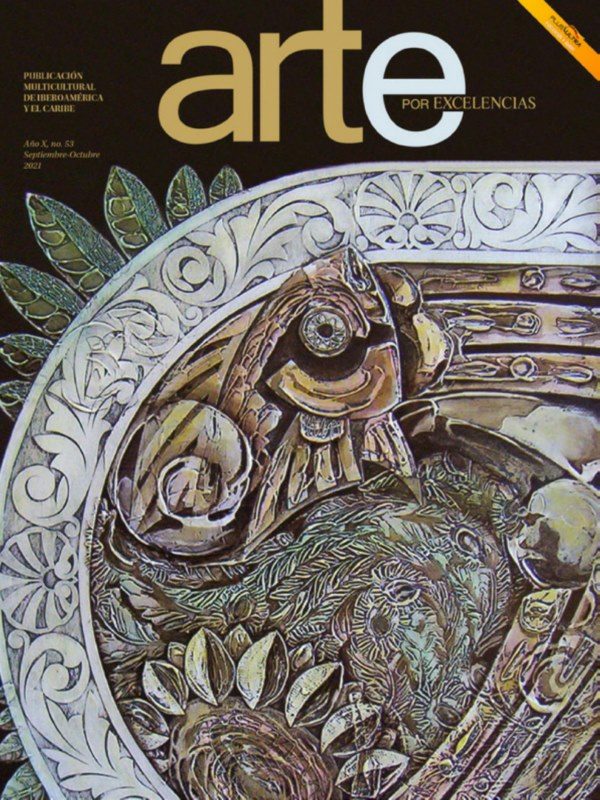El Observatorio de Línea (Ediciones Union, 2008) is an anti-academic book. I guess it’s the most bohemian book I’ve ever read and that enthralls me. I can’t help it. Elvia Rosa Castro gives herself all the green lights in the world: plenty of neologisms, digressions that delve way too deep into her personal life in a whimsical and arbitrary fashion, self-centered overstatements. Elvia scoffs at the affected academicism-oriented stances brimming with hackneyed pigeonholing and deceitfulness. She blows tons of mocking raspberries at critical standoffishness, at that writing asepsis that in the name of austerity and good sense is leading our criterion-wielding praxis down a long path littered with lethargy, mediocrity, and cowardliness. She seems to be telling us every step of the way that we must drop the ethnicity sham, that this “tiny little world” belongs to vicious beasts, tight-knit circles and cenacles, social ambitions and frivolities. A showbiz world in which shrewdness and personal relationships are better off than intelligence and talent. A minefield in which it takes some megalomania to come out of it safe and sound. “What’s the use in writing? I believe we’re being propped up by sheer and personalized vanity (…), she writes. That sounds absolutely superb to me, just unlimitedly genuine. Of course, behind all this nerve and tongue-in-cheek speech lie interpreting harshness and a philosophical density that calls for “crying over spilled milk.” The author shows off jaw-dropping ability to knock down the semantic outreach of poems and works, not to mention an amazing skill for cultural association, for setting and crisscrossing meanings. Only someone deeply imbued with the boons of theory and diehard thinking can actually manage to organically conjugate the high-tone recherché with purely colloquial, inner-city quirks that verge on earthiness and vulgarity. The end result is a prose armed with such a personality of its own that blows the readers’ minds, it destabilizes them, it rips them apart. But it also arouses unrelated envies, sound and mean. Elvia boasts a style that makes her an oddity within the insular framework, and that cannot be forgiven. It’s neither forgiven nor tolerated. It’s a rich prose that can be enjoyed dearly. The author –this author thing is giving me the creeps right now. I don’t know but it seems to me I’m falling into the same frigidity I blasted at the top of this piece. No more authors. Just Elvia plain and simple, God damn it, who, as a matter of fact, is my friend- uses short sentences most of the time, without clause excesses, without the shortcoming of unnecessary and worthless attributive uses –so commonplace in our context. And that’s something the readership is grateful for, as well as that delicious, functional, subtle yet effective sense of humor her writings ooze out. Irreverence. Most of all, irreverence. Rufo put it that way in his traditional wittiness: “Elvia is the Uma Thurman of that Kill Bill the Cuban fine arts are crying for.” She’s afraid of no one. To her, there’s no such thing as myths or untouchable authorities. With the cat-of-nine-tails in her hand, she understands nothing about concessions and that surely takes some spine-chilling nerve. Even when there’s no room for the lashing, never mind. What this is all about is the nerve to put the sentence in black and white. She’s not spooked by hyperbole either. In fact, she wallows in categorical, absolutely quasi-fascist judgments, like the one related to Adonis Flores’s drawing from the “Arañados” series (the toilet seats) that, by the way, she brags from the very onset with having it at home. This is how this judgment goes: This very piece was turned down at the Third Hall of Cuban Contemporary Art, in that section thought out for the Cuba Photographic Library, “The Sketched Idea.” You can rest assured this one beats all of them to a frazzle, absolutely all of the pieces that were displayed there. Read ’em and weep, you mouthpieces of moderation! This doesn’t mean Elvia’s texts are stripped of rigor. Not at all. She’s rigorous as she craps on the rhetoric of rigor, moderation, sobriety, aware of the fact that the heftiness of the interpretation and the quality of the prose are really all that matters. The assessment of Adonis’s artworks is crystal-clear and mind-boggling. Her reading of the piece entitled “The Visionary”, for instance, in which she ties it up to Michel Foucault’s panoptic theory, is absolutely revealing. Then she goes on: Paradigms either mutate or lay back. Destiny brews in the ritual of gambling and the complicity of bars, not in the solemn councils where hypocrisy falls in bucketfuls. To the poses, the Basque wink; to the apparent mildness, the clanking of chains and the sadomasochist pain/pleasure of the whip. These are, in sum, the metaphors of our lives: the rebellion behind the mask of acceptance and the defense of individualism behind Max Weber’s “iron cage”, behind the general-social yoke. The above is the last but one paragraph of the essay –it is fair and square- entitled “Rocio Garcia: A Project for a Sincere Exorcism of the Nation.” And it’s also one of the finest things I’ve ever read about the artist, written with fabulous literary beauty. So, keep a stiff upper lip, Elvia. There are no reasons to cry. Another feature commonly seen throughout the book is her post-critical encouragement. Elvia is always beating around the bush. Her approaches are slink, overshooting and off-key. They never make a head-on clash. To her, critique is a game, a jam session full of anecdotes, literary storytelling, gossiping, digressions and all kind of frolicking. We must say she takes her study targets as mere pretexts or forced punch lines to flaunt her writing roots. And to become an agent provocateur, of course. In her text on Ernesto Benitez, you read the piece out and the artist is seldom mentioned. The interpretation is shrouded, camouflaged. The fact of the matter is this is someone who, in addition to being a heck of a good writer, knows a lot about philosophy, history, anthropology and theory of culture. But we do learn about Benitez’s works. Let’s not be so unfair, for crying out loud! The remaining essays are equally for cult and worship, chiefly “Stark Speculations”, “Return to Utopia …” and “Mariano Rodriguez: The Coming and Going of Forms and the Firmness of his Paintings.” The latter is so valuable that deserves to have grabbed a prize at the Guy Perez Cisneros 2008 Awards. The fact that it didn’t even nab a mention is absolutely ridiculous. Perhaps because it’s not about learning based on coarse, oversimplified and unbending didacticism. Elvia’s learning is the painstaking type that takes far more brains. Definitely the kind I actually like the most. Saturday, Nov. 22, 2008 Píter Ortega Núñez (Cuba) Curator and Art Critic piter.ortega@yahoo.es

Related Publications

How Harumi Yamaguchi invented the modern woman in Japan
March 16, 2022
Giovanni Duarte and an orchestra capable of everything
August 26, 2020











